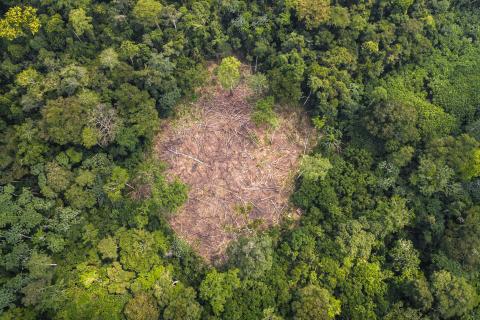Topics and Regions
Rick has over 40 years experience working in the land sector in Southern Africa. He is part of the Land Portal knowledge engagement team working to research and develop knowledge resources including data stories, blogs and in-depth country profiles for Southern, Central and Eastern Africa.
Rick is also a Senior Research Associate with Phuhlisani NPC - a South African land sector NGO and the curator of specialist Southern African land news and analysis website https://knowledgebase.land
He has just moved to the BlueSky social media platform @africaland.bsky.social
He has a PhD from the University of Cape Town. His research in Langa, Cape Town features as the central case study in a recent book Urban Planning in the Global South (2018), co-authored with the late Vanessa Watson, which examines the on-going contestations over land and housing in the rapidly growing cities of the global South.
Details
Location
Contributions
Displaying 131 - 140 of 470UN development agency slammed for support of ‘flawed’ Chinese industrial mega-project in Limpopo
Representatives of a group of civil society organisations are calling for the United Nations Development Programme to retract a Memorandum of Understanding signed with the Musina-Makhado Special Economic Zone that could contribute up to 10% of South Africa’s total emissions from all sectors combined — and threaten water security from Limpopo to Zimbabwe.
South Africa’s Land Resource in the Water Energy Food (WEF) Nexus Context
Agricultural activities are directly dependent on the availability and quality of natural resources, particularly land and water. While the availability of land has featured strongly in South Africa’s growth and transformation policy agendas, this piece focusses on presenting a more detailed view of the quantity and quality of South Africa’s land resource, and how this impacts the agricultural use and viability of land resources in sustaining South Africa growth objectives.
Bureau for Food and Agricultural Policy
The Bureau for Food and Agricultural Policy (BFAP), founded in 2004, is a non-profit organisation. BFAP exists with the distinct purpose to objectively inform and support decision-making by stakeholders in the agro-food, fibre and beverage sectors of Africa. It provides independent, rigorously tested, research-based market and policy analyses.
Lack of democratic reform in Eswatini likely to fuel greater unrest – activists
Eswatini, formerly known as Swaziland, is a “ticking time bomb”, according to Hlobi Dlamini, a gender and women’s rights advocate from that country. Reflecting on the state of Eswatini in the wake of a June 2021 uprising in pursuit of democracy and human rights, Dlamini said it is only a matter of time before there is another explosion of unrest.
Kisumu County’s Fragile Food Security
Reliance on imports from as far away as Tanzania, Uganda and even China, leaves Kisumu County’s accessibility to food on a fragile footing.



